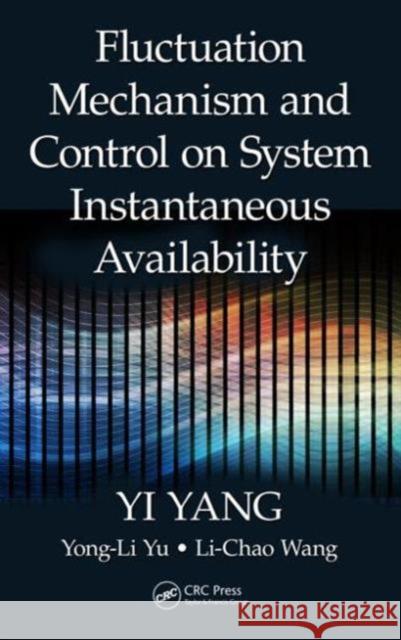Fluctuation Mechanism and Control on System Instantaneous Availability » książka
Fluctuation Mechanism and Control on System Instantaneous Availability
ISBN-13: 9781498734677 / Angielski / Twarda / 2015 / 283 str.
Fluctuation Mechanism and Control on System Instantaneous Availability
ISBN-13: 9781498734677 / Angielski / Twarda / 2015 / 283 str.
(netto: 307,18 VAT: 5%)
Najniższa cena z 30 dni: 299,90
ok. 16-18 dni roboczych.
Darmowa dostawa!
Fluctuation Mechanism and Control on System Instantaneous Availability facilitates the development of modeling and identification skills for both theoretical research and applications. Supplying a systematic introduction to the basic results in fluctuation analysis of instantaneous availability, it covers the theory, methodology, and specific engineering implementation required to conduct equipment instantaneous availability research.
Presenting practical methods and tools, the book describes how to control the matching transition of new equipment systems as a result of interactions among sub-systems. It will help readers further extend their research on steady-state availability analysis to the optimization and control over instantaneous availability that is more suitable for engineering practices.
The book provides the in-depth research on system instantaneous availability models, solutions, methodology, and frameworks required to investigate system instantaneous availability fluctuations within a certain range. Its chapters are divided into "Basic" and "Applied" components.
The Basic chapters introduce the relevant concepts about system availability, the general continuous availability model approximate solution algorithms and problems, the discrete-time systems instantaneous availability model under general probability distribution, and the system instantaneous availability model and stability proof constraint by limited time, respectively.
The Applied chapters focus on system instantaneous availability fluctuation analysis and control methods, discrete-time instantaneous availability model comparison and analysis under exponential distribution, system instantaneous availability fluctuations analysis under truncated discrete Weibull distribution, and system instantaneous availability fluctuations optimal design under truncated discrete Weibull distribution.
Presenting the material in an accessible manner, the book summarizes current research results and engineering practices. It includes many examples that illustrate the roles of the new modeling methods for instantaneous availability. It also supplies Matlab(r) code for all the calculations performed in the book.











